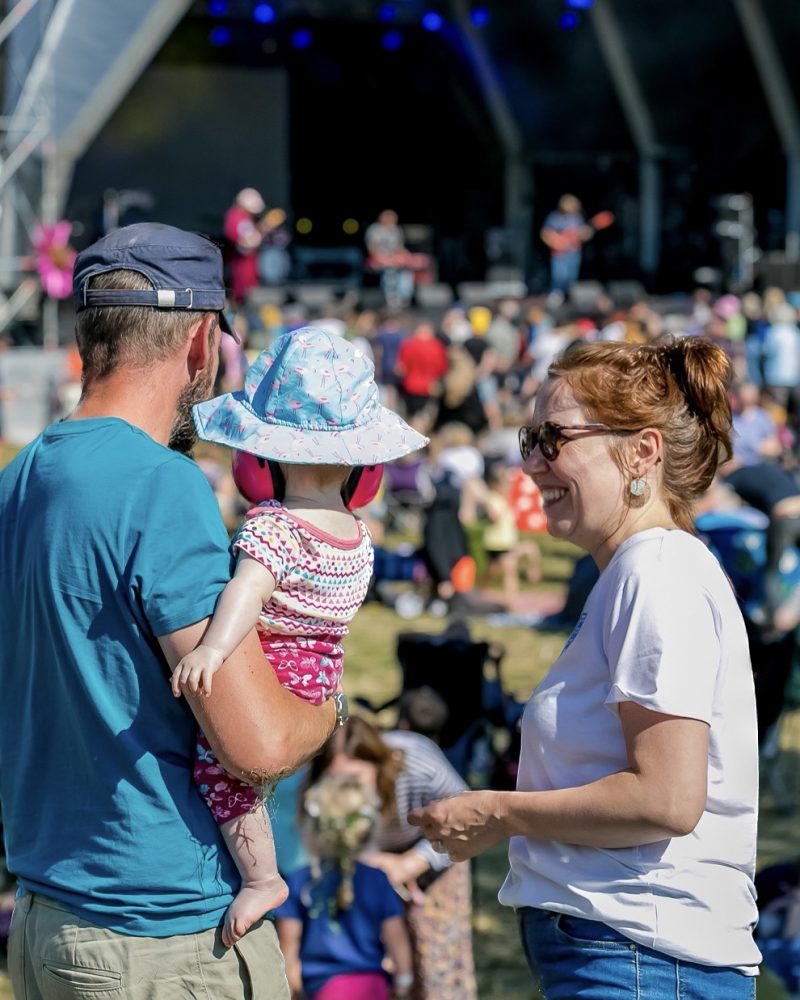Community events bring families together, creating lasting memories and strengthening local bonds. Behind these cherished gatherings lies a network of dedicated volunteers and organisers who navigate complex financial responsibilities to ensure their success. From summer fetes and charity fun runs to seasonal festivals, these events rely on careful planning and proper financial management.
Managing event finances can be especially difficult for volunteer-led groups with limited accounting experience.
Across the UK, events like the Harrogate Charity Beer Festival highlight the dedication behind family-friendly gatherings, managed by parent committees, charities, and volunteers who handle everything from budgeting to local permissions. Their success depends on transparent accounting, professional collaboration, and close financial monitoring throughout the planning process.
Many community events reach long-term success through specific financial management steps. Organisers work with specialist accountants for charities to develop detailed budgets, document all costs, and track income from ticket sales and donations.
Every expense should be logged and reconciled with bank statements to prevent overspending. Transparent reporting by charity accountants builds community trust by showing clearly how funds are raised and used.
Another key practice is keeping event finances separate from a charity’s main accounts. This separation makes it easier to track costs and income for each event and helps organisers see which activities bring in the most money.
Managing Donations and Gift Aid at Family Events
Gift Aid allows registered charities in the United Kingdom to claim an extra 25p from HM Revenue & Customs (HMRC) for every £1 donated by a UK taxpayer. This mechanism delivers a direct funding increase without any additional cost to the donor or event visitor, turning a £4 donation into £5.
The practical benefit comes from maximising each donation, helping local fetes and seasonal fairs increase their community impact through a simple administrative step.
However, claiming Gift Aid requires careful record-keeping. Organisers must collect declarations from donors confirming they are taxpayers. They also need to keep clear records of all donations received. Many community groups encounter challenges in this area, such as not getting proper declarations or mixing up Gift Aid and non-Gift Aid donations.
Accountants verify that donors’ HMRC-approved declarations are complete and that each donation qualifies for Gift Aid.
As deadlines approach, accountants track paperwork status and assist in correcting errors, guiding organisers on how to comply with HMRC’s Gift Aid requirements so that records and declarations remain accurate. Working with a charity accountant means every step is double-checked, helping to minimise rejected claims and protect community groups from costly mistakes.
Successful family events often use creative methods to collect donations. Some set up dedicated Gift Aid stations with trained volunteers who can explain the process. Others include Gift Aid forms in event programmes or on entry tickets. The key is making the process simple for donors while still meeting all legal requirements.
With traditional fundraising well-established, modern family events are also adopting new technology to expand their reach and convenience for supporters.
Digital Donation Solutions for Modern Events
Contactless giving options have changed community fundraising. Many family events now offer card readers or tap-to-donate stations that make giving quick and convenient. These digital tools appeal to parents who may not carry cash but want to support local causes while enjoying the day with their children.
For instance, the Harrogate Charity Beer Festival continues to find new ways to attract thousands of visitors each year, with the 2025 event set for March at the Crown Hotel and expecting over 3,000 attendees.
These digital solutions enable visitors to donate instantly using smartphones or contactless cards, making it easier to contribute while attending children’s activities or cake stalls. This approach meets the growing preference for cashless giving at family events and streamlines the collection of donor information.
Digital platforms can securely store donor data and Gift Aid declarations, cutting paperwork and lowering the risk of error. Modern accounting systems work well with these digital donation tools, including trusted online fundraising platforms that simplify donation tracking and reporting. Charity accountants can help set up systems that automatically record and categorise incoming funds, creating a clear audit trail for community groups.
Volunteer Management and Financial Controls
Clear financial procedures are essential for handling money responsibly, especially when volunteers lack accounting experience. Without reliable protocols, genuine errors can put event funds or reputations at risk.
Organisers should set clear rules for receiving, recording, and storing money. Regularly depositing cash in a secure safe and using tools like colour-coded envelopes, numbered tickets, or float records help prevent mistakes. Written instructions and two-person counts increase accuracy and confidence among volunteers, while proper oversight protects both them and the organisation.
Accounting systems play a key role in volunteer management. Good systems make it easy to track who is responsible for what money and when it was collected. They also create clear audit trails that show exactly how funds move through the event.
Budgeting for Sustainable Community Celebrations
A well-planned budget is important for any successful community event. It should include all expected costs, from venue hire and insurance to smaller items like decorations and printing. Income projections need to cover ticket sales, sponsorships, donations, and stall fees.
Accurate attendance forecasts help prevent budget surprises. For example, the organisers of the Harrogate Charity Beer Festival use attendance data from previous years to inform their planning. This approach helps set realistic income targets and prevents over-committing on expenses.
Contingency planning is necessary for community celebrations. Weather changes, unexpected costs, or lower-than-expected turnout can all impact finances. Organisers often build a cushion into their budgets to cover these surprises, helping to keep events on track even when things don’t go as planned.
Professional accounting support helps community groups plan for long-term results. Charity accountants can review budgets, suggest improvements, and help track actual performance against projections, referencing guidance used in organising voluntary events to ensure realistic and robust budgets.
Tracking Success Beyond Profit
Well-organised community events can boost volunteer participation and community engagement. Gathering attendee feedback and tracking new volunteer numbers can reveal valuable insights into social impact. Monitoring these measures allows charity groups to present information when seeking grants or public support.
Gathering evidence of broader benefit gives organisers a practical tool when applying for grants or seeking sponsorship. Parent committees and charity trustees collect visitor feedback, track volunteer participation numbers, and document community impact.
Charity accountants help organisers measure outcomes such as volunteer hours, attendance, and overall community impact, offering data that builds trust with funders and local authorities. Expert guidance ensures reports meet required standards, while disciplined accounting and clear impact tracking keep events sustainable year after year.
Community events thrive when passion meets good planning. Behind every joyful festival or family fair lies the quiet discipline of sound budgeting, transparent reporting, and community trust. By embracing modern tools and professional guidance, organisers can protect their funds, honour every donation, and create spaces that bring people together year after year. Financial clarity doesn’t just sustain events, it keeps the heart of the community beating.



